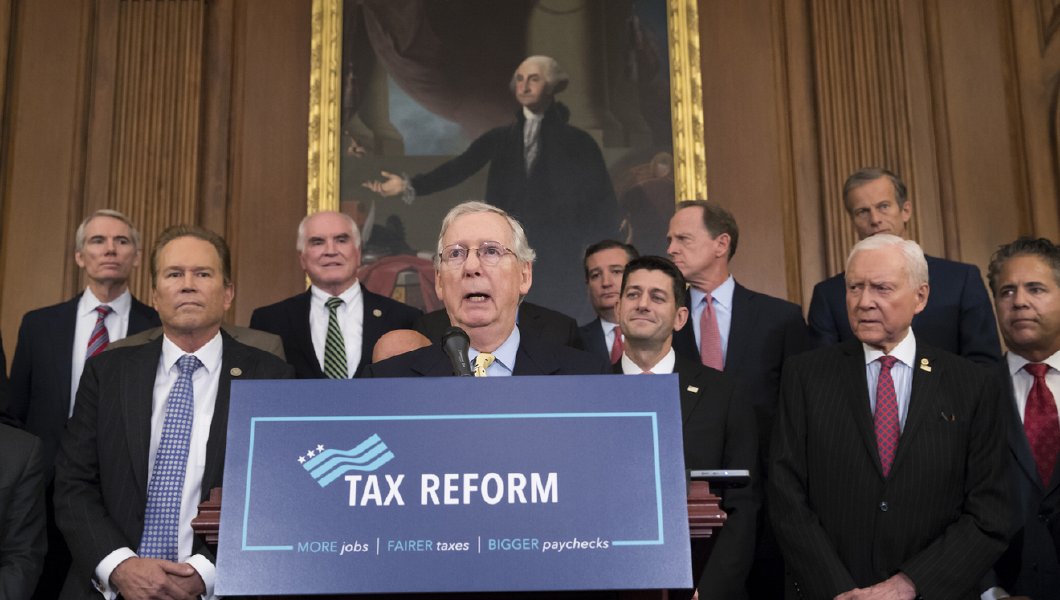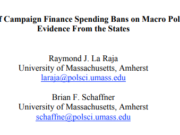Wednesday, as part of George Washington University’s Political Law Studies Initiative, a panel of campaign finance and election law experts met to discuss a new report by Ohio State University Law Professor Dan Tokaji and Graduate Research Fellow Renata Strause titled, “The New Soft Money.” CCP Research Fellow Scott Blackburn analyzed the report’s findings yesterday on our blog, and CCP Chairman Brad Smith took part in the Wednesday GW panel discussion along with former FEC Chair Don McGahn, Campaign Legal Center’s Lawrence Noble, and election attorney Brian Svoboda.
Panelists generally praised Tokaji’s and Strause’s extensive work documenting campaign finance history and presenting data on independent spending. However, they also had significant criticisms of the report.
McGahn noted that the study is built around the subjective statements of just 43 individuals who self-selected to participate. These individuals, unsurprisingly, tended to be recently defeated politicians with a negative view of independent spending. In addition to the biased sample, McGahn felt the report gave an incomplete picture of the trends in campaign finance by failing to consider the changing role of party committees. He described this role as declining since FECA, and suggested raising contribution limits to bolster candidate control of campaign messaging amidst rising independent spending.
Svoboda agreed with McGahn’s view that a holistic approach to analyzing the campaign finance system was still lacking. Svoboda questioned whether much of the activity discussed in the report was really new or just the same old politics taking place in independent groups rather than party committees. Tokaji and Strause acknowledged the report’s limitations as well, expressing a need for more factual research. They said their goal for the report was to begin to reframe the campaign finance discussion around political realities.
Judging from the panel, however, “the facts” and “reality” are still much in dispute, and hope that research of the kind offered by Tokaji and Strause will sidestep existing impasses in the campaign finance debate seems naive. In addition to the report’s anecdotal nature, different panelists drew different conclusions from it. Whereas Campaign Legal Center’s Larry Noble praised the report for exposing what he saw as a kind of “common sense coordination” between candidates and independent groups that he felt ordinary citizens would deem corrupting, McGahn praised it for correctly identifying that these informal kinds of “cooperation” are legal. Whereas Noble praised the report for showing that the Supreme Court “lives in a different reality than most of us do,” CCP Chairman Brad Smith argued that the Court does understand reality and that the focus on building anecdotal data like “The New Soft Money” or the record used in McConnell reveals a lack of understanding among academics about the Court’s rationales.
For example, Smith said that political scientists miss the point when focusing on questions such as how persuasive issue speech is compared to express advocacy. The distinction between these two in the law, Smith explained, is not drawn because doing so perfectly captures all the politically influential speech in one category and all the other speech in another. No one denies that there is overlap, but the legal distinction is essential to protecting the right to speak, which would be utterly nullified if government had broad power to regulate all potentially influential speech.
The (cordial) disagreements continued. Noble criticized the panel for only representing the interests of political parties, candidates, and interest groups, leaving the voices of citizens and voters absent from the discussion. McGahn countered that concerns about the strength of parties and the coherency of a candidate’s message are motivated by an interest in providing voters the best information and choices. The same can be said of candidate fundraising and the regulation of interest groups, but Noble’s point is not entirely without merit. As CCP Chairman Brad Smith noted, political science research tends to focus on data that is readily available, such as statements and interviews offered by the legislators who are most eager to talk about the subject in question. So while the perceived effects of independent spending on these self-selected legislators are studied in detail, the effects for voters are basically ignored. Members of organizations like the Sierra Club, the NRA or the Brady Campaign, the NAACP, and the League of Women Voters surely appreciate the ability of these groups to speak about candidates or publish voter scorecards. If a candidate feels “threatened” by the possibility that groups will spend money to speak to voters about them in critical terms, is that really a problem? Studying politicians’ perspectives on independent spending without closely examining its impact for voters paints an incomplete picture. As Smith said at the panel, where you look determines what you see.
That core problem with “The New Soft Money” is hard to get around. Strause said she hoped the report would be useful to law students and journalists, but by presenting a biased slice of reality, it’s likely to become fodder for regulators to point to when advocating their standard diet of lower limits and more forced disclosure, and not much more.














